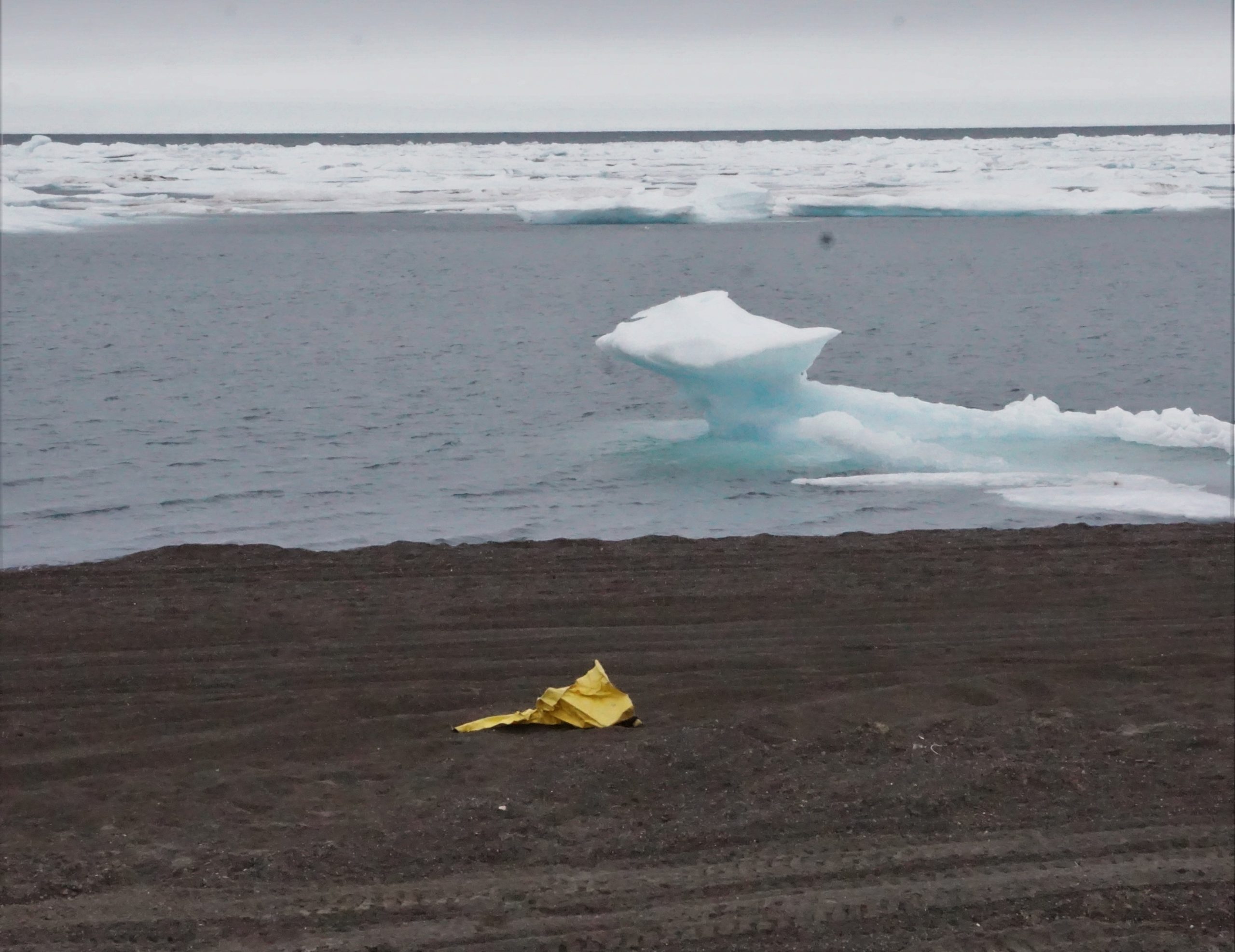Why engaging the private sector is critical to cleaning up Arctic Ocean plastic pollution
An Arctic Plastic Partnership could highlight the business advantage to solving the region’s marine plastic crisis.

When I traveled to Svalbard, it was easy to imagine that I was in a pristine Arctic wilderness, far from anything human-made. The archipelago’s Barents Sea shores are hundreds of kilometers from the nearest mainland civilization. I could see a polar bear in the distance.
But then, I was shocked by the sight of waste that was piling up. It was mostly plastic, and it triggered alarm bells in my mind. During my time doing marine research in the Arctic Circle, I learned that the Arctic Ocean performs as a sink to marine litter from all over the world. Studies over the past decade have shown high concentrations of marine litter especially plastics in the Arctic region, posing an environmental danger to the biodiversity of the Arctic. Stronger public-private partnerships can serve as important vehicles to clean up Arctic waters, where businesses need to be fully integrated to address the plastic challenge. I propose an Arctic Plastic Partnership that offers a new approach, with the potential of leading to purposeful actions to combat plastic pollution and would hopefully be instrumental in ushering a new era of a plastic-reduced economy
Globally, climate change adaptation and mitigation have been mostly associated with the role of governments in implementing such policies. However, there is a need for the private sector to step in as a supplier of innovative goods and services in this space. The private sector — through design, developing innovative products and technologies, and promoting consumerism — could allow for unique contributions to meet climate change priorities. One area that the private sector could swiftly contribute to is clean oceans. According to the World Economic Forum, the United States, Europe and Asia together make up 85 percent of plastics production. Europe and the United States are not only home to substantial shares of plastic packaging production but also to the majority of global companies in the industry, including key decision-makers who determine the design of these packaging. To date, no specific initiatives on mobilizing the private sector have a special lens and focus on the Arctic and tackling plastic pollution in its waters.
Recently, the Arctic Council has taken steps to foster a pan-Arctic strategy to combat plastic pollution, however this remains restricted to the eight Arctic governments. Mobilizing the private sector — as done in South and Southeast Asia to “combat plastic pollution in oceans throughout the Indo-Pacific region” — can positively influence the redefinition of plastics and lead to plastic reduction, if not its elimination in the Arctic Ocean. The mechanism targeting countries with the largest sources of plastic pollution in the sea, The Philippines, Indonesia, Sri Lanka and Vietnam, aims at creating new business opportunities and empowering women entrepreneurs while working with local partners to prevent waste from finding its way to the ocean. Therefore, I propose the Arctic Plastic Partnership, a virtual technology platform, like a ‘marketplace’ for innovation challenges. Think of an Arctic version of XPRIZE or Innocentive, where industry presents innovation challenges, and startups and experts propose ideas that lead to novel solutions. Together, diverse stakeholders can redesign the Arctic’s economy to move away from its current linear ‘take-make-dispose’ economy to a circular ‘make-use-recycle’ economy.
By offering full access to subject matter experts in niche areas pertaining to plastic pollution, and to stakeholders engaged in shaping circular economy products, in addition to shared ownership of innovations endorsed, businesses will be incentivized to partake in the opportunity this partnership presents. In addition to all the wonderful features of APP mentioned, it can generate its own revenue too! APP programming will address an industry challenge per year, where each year a specific industry is targeted. Companies will fund innovations by launching challenges to solve specific problems, where the proposed innovation acquires funding, and companies receive research and development support. Given fisheries’ importance in the Arctic, APP can start by addressing fisheries-specific plastic challenges for Year 1 and partner with the fishing industry and related donors from Arctic and observer states. An example would be a challenge addressing sustainable fishing gear or gear-related technologies to reduce ghost fishing and plastic pollution caused by Arctic fishing industries.
Plastic pollution poses a unique risk in the Arctic because its ecosystems are interconnected with the region’s food, culture, and commercial activities. Catalyzing collaboration through an efficient public-private research and development partnership is a necessity. With Reykjavik prepared to host the ‘International Symposium on Plastics in the Arctic and Sub-Arctic Region’ forum next spring, there are clear intentions to encourage dialogue on ways to reduce impact of plastics in the Arctic marine environment. The time to solve the Arctic’s plastic challenges and foster circular economy principles is now.
Rumaitha Al Busaidi is an award winning Omani marine scientist, avid polar explorer and an executive director at the Environment Society of Oman.

The views expressed here are the writer’s and are not necessarily endorsed by the Arctic Initiative or ArcticToday, which welcomes a broad range of viewpoints. To submit a piece for consideration, email commentary (at) arctictoday.com.